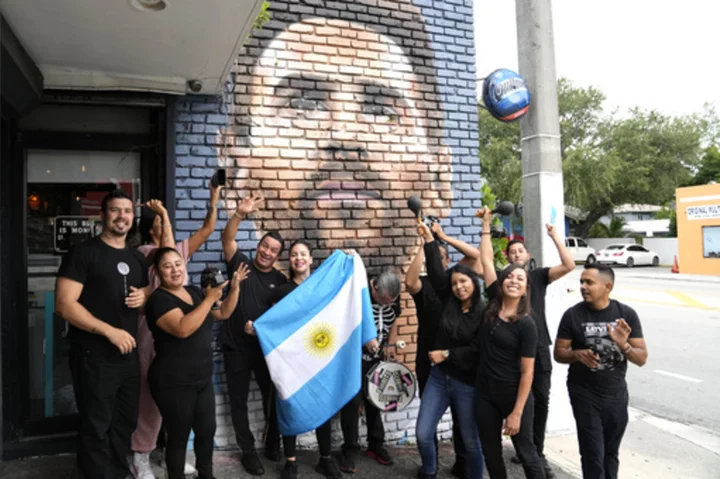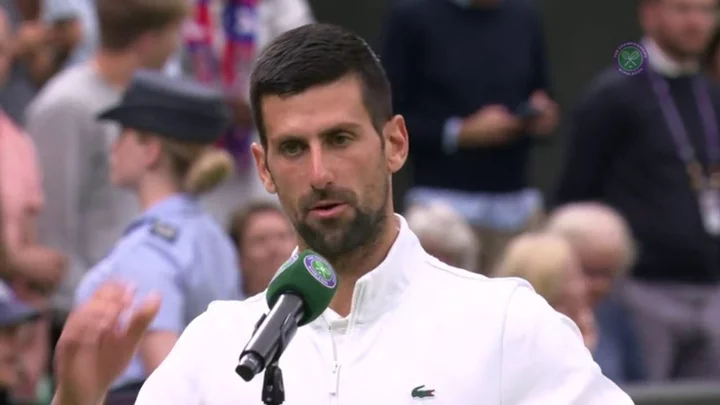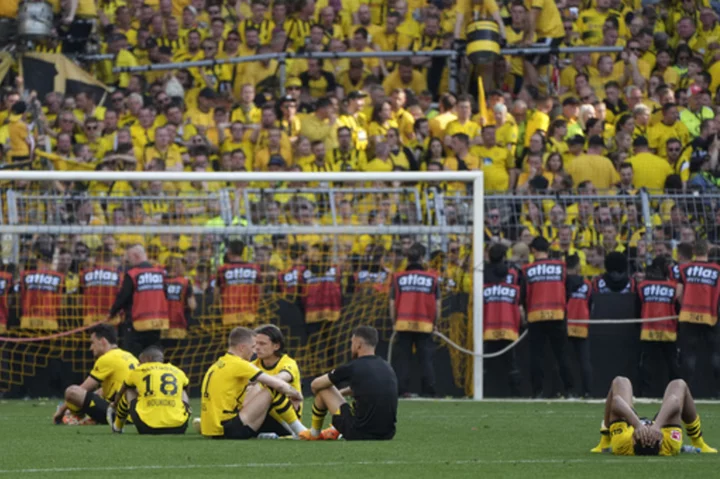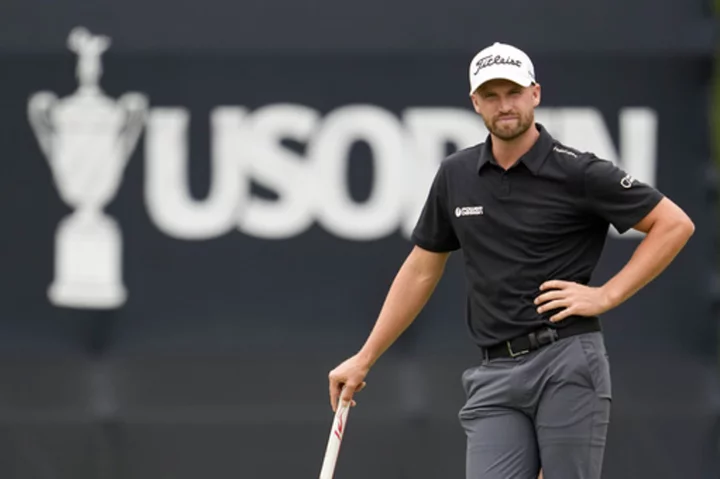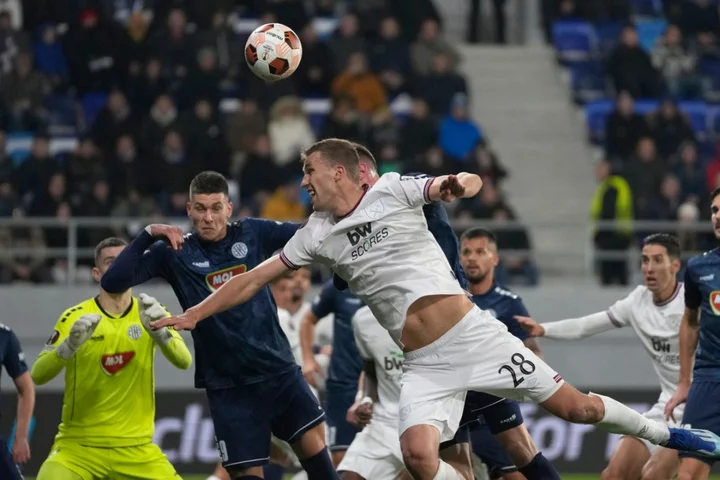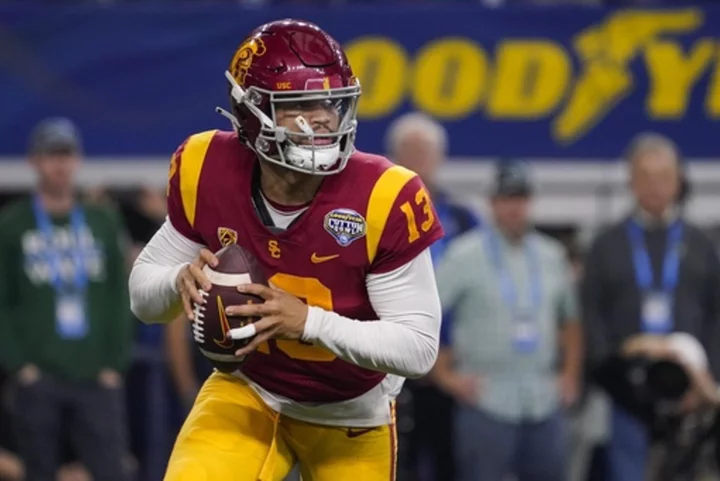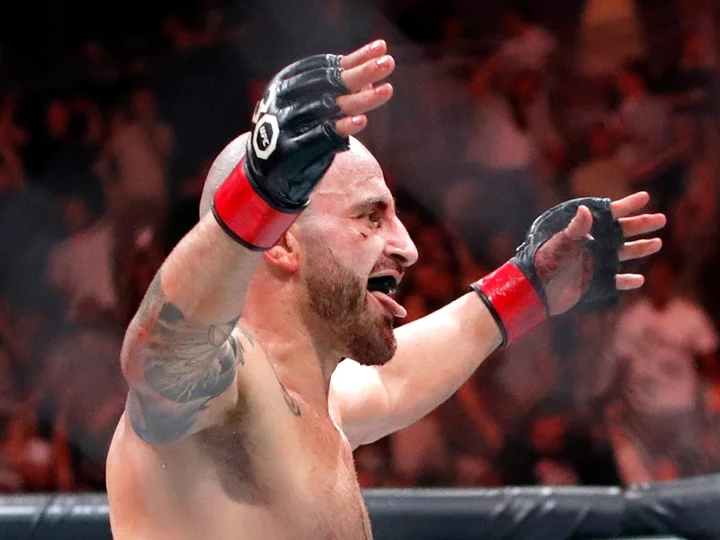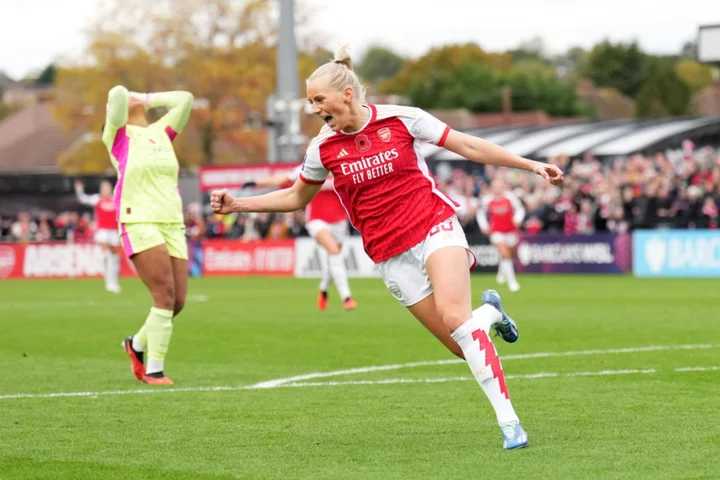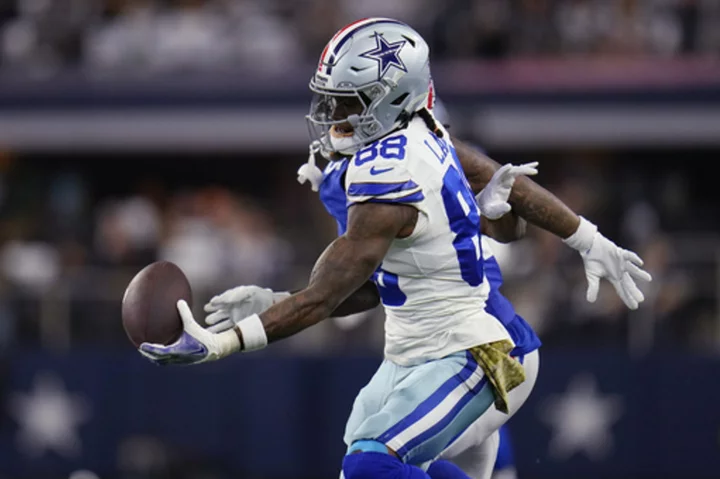Lionel Messi has finalized his deal to join Major League Soccer, and after years of planning and pursuing, Inter Miami has landed a global icon.
Messi’s contract became official Saturday, a little more than five weeks after he declared that he would be coming to Inter Miami. The team will introduce him Sunday night at its stadium in Fort Lauderdale, and the first home match of the Messi era could be as early as Friday in a Leagues Cup match against Cruz Azul.
A formal news conference is scheduled for Monday, and his first training session with his new club is expected on Tuesday. The club previously announced that Messi's deal will be for 2 1/2 seasons and will pay him between $50 million and $60 million annually — putting the total contract value between $125 million and $150 million in cash alone.
"BIENVENIDO 10," the team posted Saturday on Twitter.
Welcome, Messi, indeed.
“We are overjoyed that the greatest player in the world chose Inter Miami CF and Major League Soccer, and his decision is a testament to the momentum and energy behind our League and our sport in North America,” MLS Commissioner Don Garber said in a statement. “We have no doubt that Lionel will show the world that MLS can be a League of Choice for the best players in the game."
It is, in many ways, an unusual marriage. Messi — still perhaps the biggest star in the game — is signing with a team that entered Saturday in last place in the MLS's Eastern Conference standings. It’s a club in just its fourth season that has never won a championship and plays in a temporary home that will seat only about 22,000 people when some rushed renovations like adding extra bleacher seats get completed.
Doesn’t matter. Soccer royalty now plays for Inter Miami.
Messi arrived in South Florida on Tuesday following vacation, then started the process of physicals and paperwork on Wednesday and the deal got finalized Saturday afternoon. The seven-time Ballon d’Or winner — the trophy given annually to the world’s best player — is making his Miami move after two years with Paris Saint-Germain.
“I’m very excited to start this next step in my career with Inter Miami and in the United States,” Messi said in a statement distributed by the club. “This is a fantastic opportunity and together we will continue to build this beautiful project. The idea is to work together to achieve the objectives we set, and I’m very eager to start helping here in my new home.”
It was widely known that Messi would be leaving PSG. The mystery was where he was going. Some thought Messi eventually would choose to play for Al-Hilal in Saudi Arabia, following longtime rival Cristiano Ronaldo to a kingdom where some clubs now are funded by its sovereign wealth fund. Going back to Barcelona, a storied franchise where he spent most of his career, was another possibility.
In the end, Miami won. An idea that co-owner David Beckham began floating publicly in 2021 — two years before, evidently, the team actually started thinking about how to pull this off — has now become reality.
“After winning the World Cup and not being able to return to Barcelona, it was my turn to go to the league of the United States to live football in another way,” Messi said in June when announcing his decision.
He led Argentina to the World Cup title last December. Messi has more than 800 goals in his career for club and country, making him one of the greatest scorers in the sport’s history. He scored twice in last year’s World Cup final against France, a match that ended 3-3 with Argentina prevailing 4-2 on penalty kicks.
He is a four-time Champions League winner and his 129 goals in the top club competition are second to Ronaldo’s 140. Messi has won 10 La Liga titles and two Ligue 1 championships, seven Copa del Reys and three Club World Cups plus a Copa América and Olympic gold medal for Argentina.
“Ten years ago, when I started my journey to build a new team in Miami, I said that I dreamt of bringing the greatest players in the world to this amazing city," Beckham said. "Players who shared the ambition I had when I joined LA Galaxy to help grow football in the USA and to build a legacy for the next generation in this sport that we love so much.
“Today that dream came true."
___
More AP soccer: https://apnews.com/hub/soccer and https://twitter.com/AP_Sports

